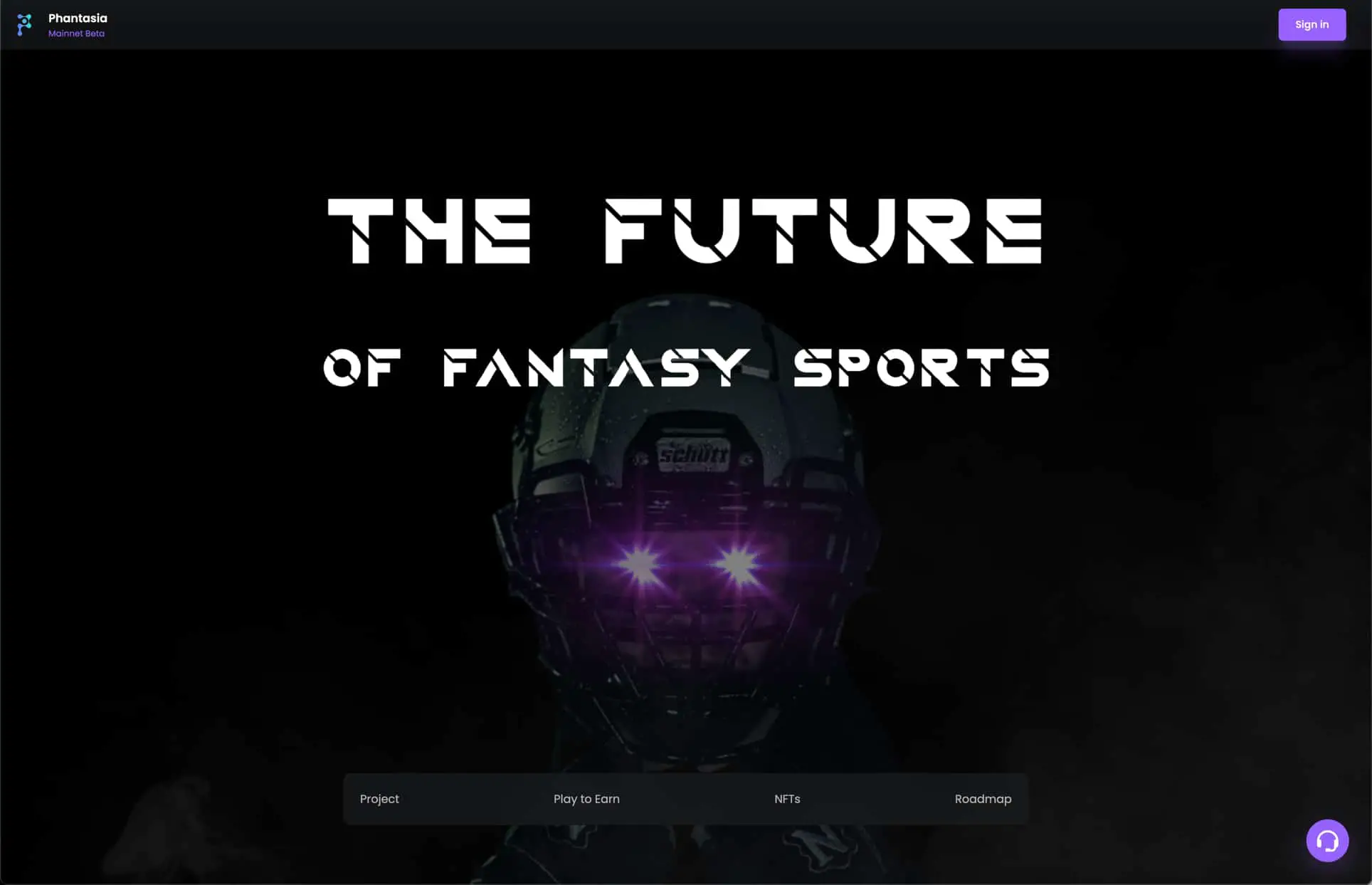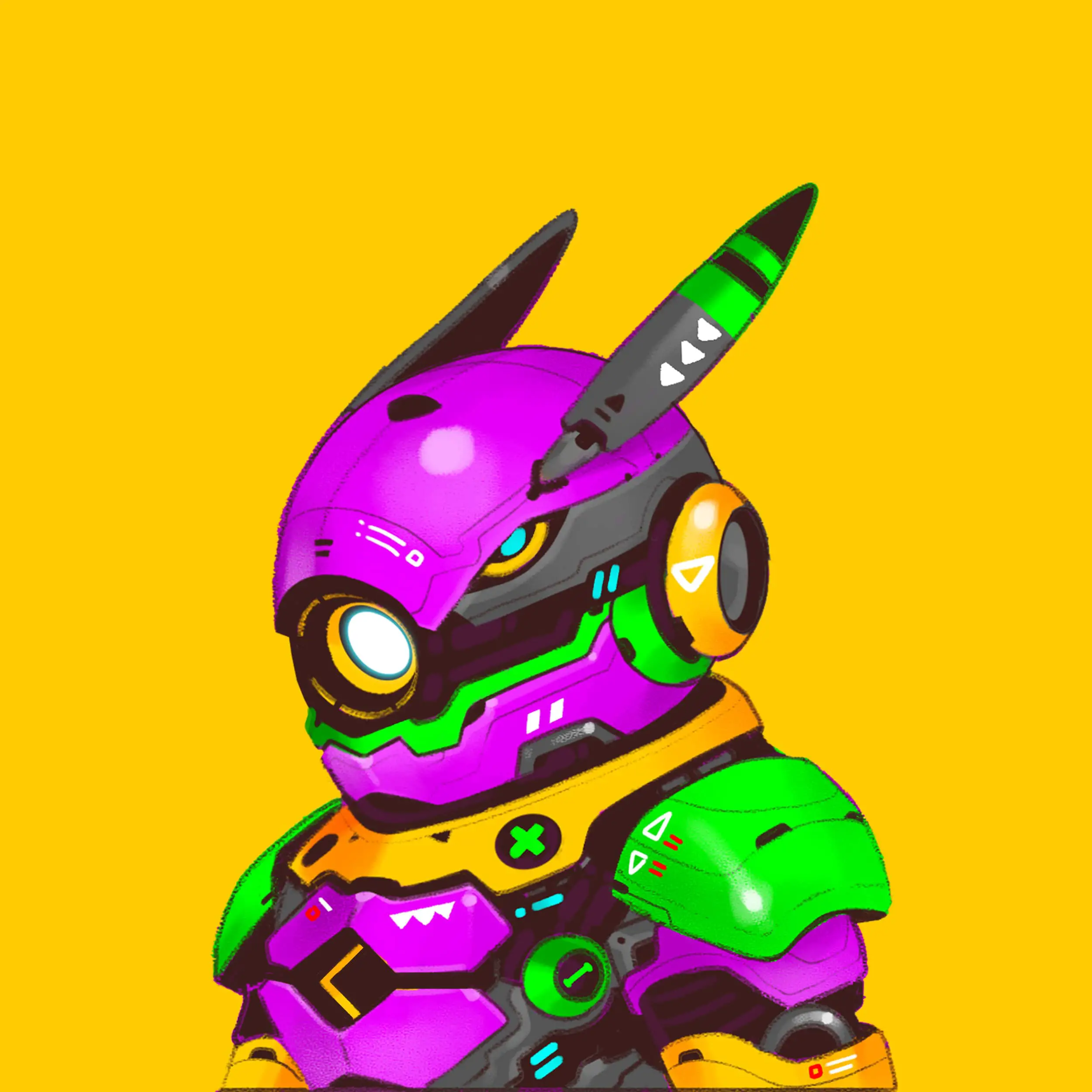In brief:
- Phantasia Sports plans to revolutionize fantasy sports with NFTs
- The “play to earn” system allows you to play fantasy sports and $FANT
- Secured $1.85 million in seed capital from eight primary investors
The hype surrounding NFTs is accelerating and that’s because the blockchain is catching up to its capabilities. We’re seeing a lot of utility around that goes way beyond profile pictures or communities.
Phantasia Sports, in conjunction with their partners, see a bright future on the horizon for platform-specific NFT environments, and they’re poised to change how we do everything online– but they’ll start with fantasy sports.
Fantasy Sports
Unless you’re booming your way in front of cable television (and even then), you’ve probably seen advertisements for fantasy sports and various online betting sites. While it might seem niche to the uninitiated, fantasy sports are exploding in popularity, doubling the number of players two times consecutively in the past fifteen years.
On top of that, fantasy sports grew from $20.36 billion in 2020 to $22.31 billion in 2021 which is an impressive 9.5% increase but is supposed to increase to $38.6 billion by 2025– another 14.5% increase. However, the sites hosting fantasy sports still use the middle-man “pay to play” model.
While the apps in question feign necessity, the regular increases of rake fees without any appreciable difference in the product shows that something’s rotten in Denmark. Thankfully, blockchain programmers and crypto enthusiasts have just the solution: Fantasy Sports NFTs.
NFT Movement
NFTs, or non-fungible tokens, are the blockchain’s answer to an increasing need for both legitimacy and scarcity as coins and tokens exploded… enter NFTs. Initially, a niche market where people belonging to even more niche communities showed their support for an artist by purchasing NFTs.
However, these market prospects quickly led to speculators recognizing a way to commodify what is essentially a freely reproducible resource: digital files. In a similar vein as Andy Warhol, NFTs sought to take something that was infinitely and freely reproducible and transform it into a product of scarcity with cultural significance– ostensibly, at least.
However, that element of scarcity proved to be the way out for NFTs from the realm of whim and dalliance into one of value and production. With the rise of “open” virtual spaces where the users participate in the building and development of the digital space, NFTs can serve as anything from a profile picture to a banking franchise.
It just depends on the digital space.
Phantasia Sports
Phantasia Sports saw how the scarcity of NFTs assigned real value and recognized that it could stand in the place of cash– or even other cryptocurrencies– for traditionally cash-based spaces, digital or otherwise. However, in this instance, Phantasia also recognized how this value could be passed on to its users.
Specifically, fantasy sports rakes, or the amount of money that a fantasy sports player has to pay to play the game in the first place– which then requires them to pay more money to actually bet. That would be like if Walmart had a doorman taking $10 just for the privilege of being able to shop at the store.
It doesn’t help that the increase of rake rates doesn’t seem to correspond with an improvement in the service and just goes to purchasing more advertisements and filling shareholder pockets. But Phantasia seeks to upend this dynamic by tying their in-game betting currency to in-house tokens and NFTs.
Taken a step further, these proprietary assets are themselves reinforced with the Solana (SOL) native coin that’s taking crypto by storm, increasing in value by almost +10,000% to about $200 as of this writing (+/- $2). With the technical underpinning designed for the multichain, Solana not only presents a promising investment in its own right but is naturally designed to incentivize its development and use.
Beyond the programmability, the Solana coin also allows for outrageously low-latency transactions, able to process around 700,000 per second. This is where Phantasia sports can use this extremely inexpensive transaction fee to provide significantly more value to fantasy sports players since the rake is less than $0.01 and 0.00001 SOL.
That said, Phantasia isn’t just interested in offering an improved way to play fantasy sports as the company has big plans (and even bigger partners) who see this model as its own base platform. Aside from the ability to play fantasy sports without getting raked into oblivion, the Phantasia ecosystem will facilitate player-designed competitions and structure.
Roadmap
As of this moment, Phantasia Sports, $Fant token, and its associated marketplace are already online and the IDO has already ended. That said, Phantasia still has an ambitious plan for how and where to expand in the future, starting with the continued integration of more and more sports.
Even better, with the play-to-earn function up on Mainnet and the DAO structure launched, all of the base infrastructure ready for growth is operating. This growth will see Phantasia continue to add more customization from all levels as well as mobile functionality, so you can play the way you want anytime.
Background
Having already secured $1.85 million in seed capital from eight primary investors, Phantasia Sports has a solid foundation from which to build its platform. On top of that, the blockchain code used for Phantasia assets lends itself especially well for scaling and expanding its offerings in the future.
NFT Integration and Utility
If you’re ready to get started playing fantasy sports without the onerous rake fees hanging over your head and secure some sweet NFTs in the process, Phantasia Sports has you covered. In fact, as part of their initial entry to secure a large user base, you can play without having to bet anything at all.
This “play to earn” system allows you to not only play fantasy sports for free but earn Phantasia’s $Fant token that can be cashed in for exclusive and limited NFTs. Even better, the NFTs are modular, allowing you to mix and match different assets together as part of an in-app “Fan Card.”
Conclusion
Ultimately, whether you’re a player or a speculator, Phantasia Sports seems like a solid investment. For players, you get the option of customizing almost everything about the fantasy sports experience. And for investors, the sheer financial incentive for traditional fantasy sports consumers to move over to Phantasia Sports suggests the tokens and NFTs could appreciate considerably in the future.


